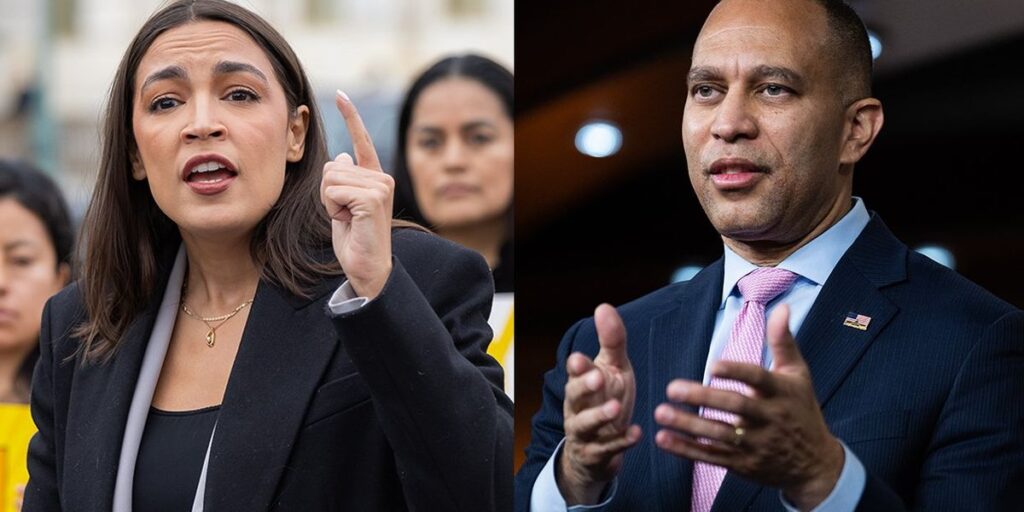Republican U.S. House Passes Controversial Anti-Trans Bill
After the Republican-controlled U.S. House of Representatives voted on Tuesday to pass the exclusionary “Protection of Women and Girls in Sports Act of 2025,” concerns were raised by Democrats regarding its implications for children, particularly in relation to genital checks and vulnerability to sexual predators. The legislation, which prohibits transgender girls and women from competing in school sports that align with their gender identity, narrowly passed with a vote of 218-206. Notably, two Democratic representatives from Texas—Henry Cuellar and Vicente Gonzalez—voted in favor of the bill.
Key Provisions of the Bill
The proposed measure seeks to amend Title IX, defining sex in athletics “solely based on a person’s reproductive biology and genetics at birth.” It bars individuals assigned male at birth from participating in athletic programs designated for women or girls that receive federal funding. Additionally, the bill mandates a study to evaluate the potential psychological and developmental impact on cisgender girls if transgender girls are allowed to compete in women’s sports.
Dissent from Democratic Lawmakers and LGBTQ+ Advocates
Democratic lawmakers and LGBTQ+ advocates have condemned the bill, labeling it the “GOP Child Predator Empowerment Act.” They argue it invites invasive practices that target children and exacerbates discrimination against transgender youth.
Ocasio-Cortez’s Passionate Opposition
On the House floor, Rep. Alexandria Ocasio-Cortez (D-NY) delivered a powerful critique of the legislation, accusing Republicans of enforcing restrictive and harmful gender norms in the name of fairness in sports. She stated, “Here we are today, Republicans who have voted against the Violence Against Women Act, who have stripped away women’s rights to control their own bodies, now pretending to care about women under the guise of attacking trans girls.” She defiantly declared, “Not today,” in response to the bill.
Ocasio-Cortez also raised concerns about the lack of enforcement mechanisms within the bill, warning that this omission could enable harmful practices: “When there is no enforcement mechanism, you open the door to every enforcement mechanism.” She emphasized that the bill could lead to societal questioning of all women’s identities based on their appearance and choices.
Jeffries Critiques Federal Overreach
On MSNBC’s “All in With Chris Hayes,” House Minority Leader Hakeem Jeffries (D-NY) condemned the bill as a dangerous federal overreach that jeopardizes children’s safety under the pretense of ensuring fairness in sports. He stated, “House Democrats believe in the principles of fairness and safety in sports for all children. However, House Republicans are not serious about these issues.”
Jeffries pointed out the potential for exploitation inherent in the legislation, suggesting it would allow adults, including predators, to conduct intrusive inspections of children. He stated that the bill could lead to a situation where “childhood predators would be unleashed on the children of this country.” He affirmed that the bill essentially promotes “genital checks” of young athletes.
Responses from LGBTQ+ Rights Organizations
LGBTQ+ advocacy groups have joined the outcry against the legislation. Melanie Willingham-Jaggers, executive director of GLSEN, criticized the bill’s focus on enforcing extreme and limited gender expectations, warning that it may subject all girls to scrutiny and harassment based on their adherence to traditional femininity.
Rodrigo Heng-Lehtinen, executive director of Advocates for Trans Equality, described the bill as a harmful attack on transgender girls and women, arguing that it undermines the quality of education and safety for LGBTQI+ students. He asserted, “This discriminatory bill is an unconscionable attack on transgender girls and women…. If this bill is signed into law, it makes every school less safe for transgender students and their peers.”
HRC President’s Statement
Kelley Robinson, president of the Human Rights Campaign, expressed disapproval of the legislation, emphasizing that both fairness and safety should be prioritized in sports. “This kind of blanket ban deprives kids of those things,” Robinson said, highlighting concerns about harassment and invasive inquiries into young athletes’ gender identity.
Overall, as the debate continues, many fear that this legislation not only threatens the inclusion of transgender individuals in sports but also poses broader risks to the rights and safety of all girls and women.


